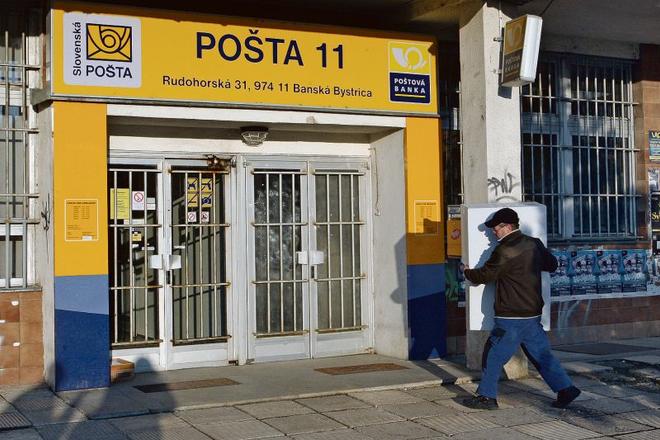INFRASTRUCTURE is one of the most valuable assets of telecom operators and it also requires huge investments. Thus, telecom firms looking for cost savings are considering network sharing. This development is also emerging in Slovakia as Orange Slovensko and O2 have confirmed that they are holding talks about network sharing.
Experts and market watchers see network sharing as a logical next step in development of the telecommunication market. Peter Steigauf from the zive.sk and MobilMania.sk websites that focus on telecommunications sees network sharing as a way to save on operating costs.
“As far as this concept does not have a negative impact on clients, I do not see a problem in it,” said Steigauf, adding that there are already examples of such cooperation in other countries. “But since the mobile network creates the foundation for each operator, certainly long negotiations precede [reaching of] a final agreement and the issue of ownership might also become a decisive factor.”
Roman Vavro, spokesperson for the Regulatory Authority of Electronic Communications and Postal Services (RÚ) sees such cooperation between operators as normal and one that is supported by Brussels authorities. For example, O2 and T-Mobile in the Czech Republic have agreed to share their networks. But this has angered the third operator in the Czech Republic, Vodafone, which is afraid that this network sharing would put it at disadvantage to the two other operators.
According to Vladimír Settey, system engineer at Cisco Slovakia, time will show what the result of the ongoing talks will be while he believes that except for some operators radio access network (RAN) sharing might be a preferred way to reach the goals set by regulatory licensing conditions.
“Reaching an agreement on network sharing is a complex process and it might take time to achieve such a goal,” said Settey. “Operators can also have different priorities for some period at the beginning of the Long-Term Evolution rollout.”
The information about the talks between Orange Slovensko and O2 emerged in mid September when the Hospodárske Noviny economic daily wrote about a plan to join their networks and save operating and modernisation costs that might amount to thousands or even millions of euros. For O2 this may mean that it will not have to actually build the most modern but very expensive 4G network also known as Long-Term Evolution (LTE) in places where Orange has already built it. Clients of Orange, on the other hand, would be able to use the existing technologies of the O2’s Czech partner. In this way operators would be able to fully focus on covering localities that are not yet covered with a signal.
Swan, a new mobile operator in Slovakia, also confirmed it is in negotiations about network sharing. Slovak Telekom has not commented on the issue. However, as negotiations are still ongoing, O2 and Orange stated that it is premature to provide more detailed information.
“It is only logical that operators would try to join forces,” Martina Jamrichová, spokesperson of O2, told The Slovak Spectator. “But this assumes that each has and continues to build its own network; this sharing is about each side contributing something.”
According to Orange Slovensko, it is no longer a secret that under current conditions all the operators are searching for ways to reduce their investment and operating costs and expenditures on networks are a significant portion of operators’ total costs.
“Thus sharing construction and operation of networks is a logical step in the efforts of each operator,” Alexandra Piskunová, spokesperson of Orange Slovensko told The Slovak Spectator, adding that her company has not reached any concrete agreement with any other operator.
Swan sees network sharing as a logical continuation of the development of the telecom market.
“Growing requirements by clients on one hand and decreasing revenues on the other hand create pressure on operators to reduce costs,” Martin Mosný, director for strategy and development at Swan, told The Slovak Spectator. “Thus it is logical that we are also negotiating with other operators about joint building of the network and then sharing its capacity.”
Swan is also holding talks with the state-managed postal services operator, Slovenská Pošta.
Mosný indicated on October 27 that a memorandum on cooperation might be signed within two weeks but he did not elaborate on details of the possible cooperation.
The postal services operator had earlier indicated its plans to expand into new sectors or services while it has also considered a project in which it would be a virtual mobile operator.
Tomáš Drucker, director of Slovenská Pošta, told the Trend economic weekly in June “I believe in this project” while adding that the firm sees it as feasible in the environment of postal services.
In the broader perspective, according to Settey, infrastructure sharing has many flavours, ranging from simple mast sharing to national roaming or a mobile virtual network operator (MVNO) and some of these are being applied in Slovakia.
“More specific radio access network sharing is a complex process where operators need to carefully assess many pros and cons, such as cost optimisation or new revenue sources versus competitive differentiation,” said Settey.
Other aspects of the issue are regulatory, according to Settey. While RAN sharing might be beneficial for subscribers in terms of coverage, competition on the market needs to be maintained at the same time. In this respect he noted that in Slovakia there is a regulatory obligation for national roaming applied to established operators until 2018. He added that in some countries there is also an obligation for mast sharing because of environmental concerns.
“Overall it seems that network sharing is a feature in mature markets mainly due to optimisation of price per bandwidth unit and we might expect such evolution in Slovakia as well,” Settey said.



 Slovenská Pošta (source: Sme)
Slovenská Pošta (source: Sme)